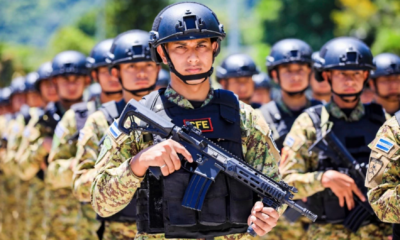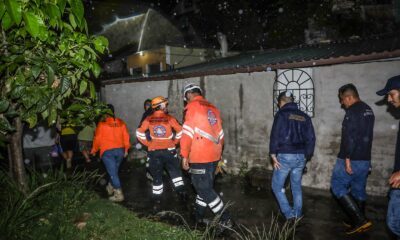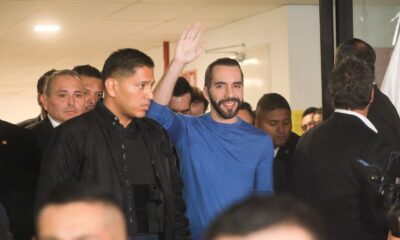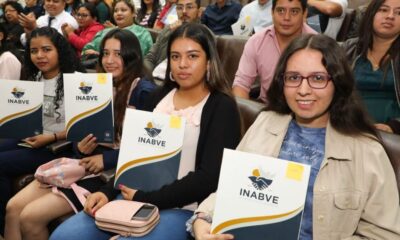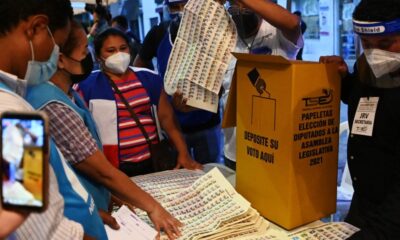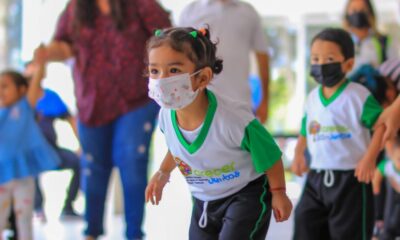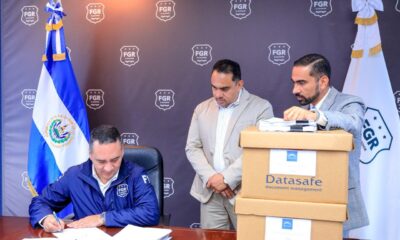Central America
Young person will represent El Salvador at International Chemistry Olympiad in Switzerland
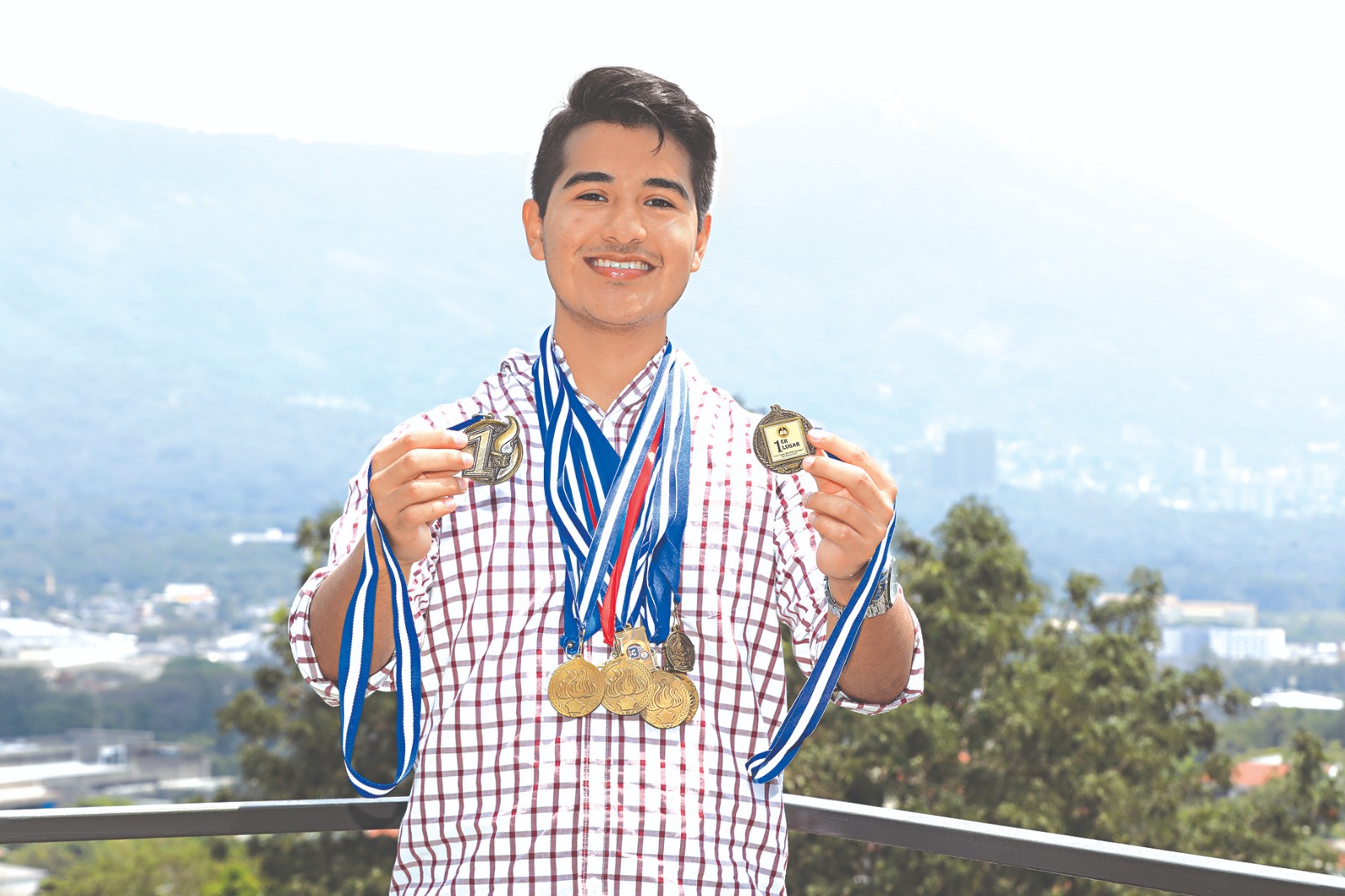
May 29 |
At the age of 18, Luis Ronaldo Chávez Escamilla is one of the three young people in the delegation that will represent El Salvador at the International Chemistry Olympiad.
The 55th edition of the international competition will take place from July 16 to 25 in Zurich, Switzerland.
“For me it is one of the most important things in my life. I see it not only as an academic achievement, but as a life experience. They have been shaping me as a person and have helped me discover what I am passionate about and what I want for my future,” she said.
He added that around 84 countries will participate in the Olympics, with approximately three to four representatives per country. There will be an average of 300 contestants in total.
This represents a challenge for the young man, who since he applied for the competition has dedicated himself to preparing for it. Luis is part of the Jóvenes Talento program, where he receives “training”, as he calls the classes. At home he also spends time solving math problems.
“It is the most difficult and needs many months of preparation, but this year, as I have already finished high school, I have dedicated myself to prepare for this; it is quite demanding,” he said.
His participation in the Olympics is part of his academic record. Luis, who since he was a child was very diligent in his studies, has competed in three more Olympiads, two of which are international and one national.
“Since I was a child I liked mathematics very much, but I had never discovered my passion as such, until fifth grade, when my dad came with the newspaper. Before, the National Math Olympiad was published in the newspaper and people who wanted to participate in the program had to solve certain problems and exams,” he told “Diario El Salvador”.
When he was 12 years old, his father came with the newspaper and proposed it to him as a challenge. With some trepidation she took the exams. “I passed the first stage and that’s when it caught my attention even more. I passed the second stage and qualified. That’s when I realized that I really had talent in the area of numbers,” he added.
In seventh grade, the young man took the exams for the Salvadoran Chemistry Olympiad (OSQ) for the first time. After his participation, he was able to enter the chemistry group in the Jóvenes Talento program.
“From seventh grade onwards, they allow participation in certain Olympic groups in each area of science. I was always interested in chemistry. My first class in the program was chemistry. In that group there are three levels: elementary, intermediate and advanced. Over the years I have moved up through the levels. Now I am in the advanced level, which is the highest level. Being part of these groups gives you the opportunity to take selective exams of all the classmates classified to participate in these international olympiads,” he said.
In 2021 and 2022 he had the opportunity to participate in the Salvadoran Olympiad and the Ibero-American Chemistry Olympiad. Although everything was virtual, due to the COVID-19 pandemic, he won two bronze medals. A third silver medal was obtained by participating in the World Applied Chemistry Olympiad (WAChO), organized by the Indonesian scientific society.
According to the young man, he participated in the last Olympiad with a research project: “I won my silver medal with the sustainable chemistry project, which is the generation of electricity from wastewater,” he said.
In 2022, Luis won a half scholarship to study at the Monterrey Institute of Technology, a prestigious study center in Mexico, after obtaining a high score in the academic aptitude test.
Central America
Guatemalan police officer killed in mob riots over baby kidnapping
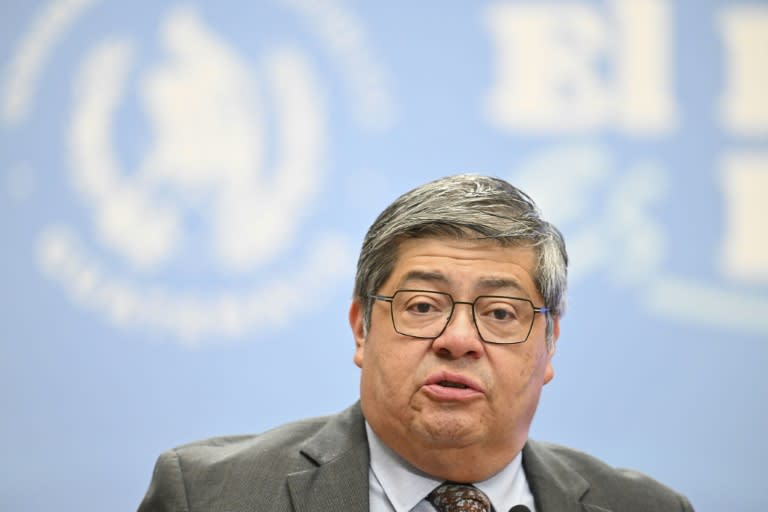
A police officer was killed during riots provoked by an enraged mob in a Guatemalan town following the kidnapping of a baby, the government reported on Wednesday.
The incidents began on Tuesday night and continued into the early hours of Wednesday in the town of San Vicente Pacaya, about 25 km south of the capital, according to Minister of the Interior Francisco Jiménez.
“There was an incident in San Vicente Pacaya where, unfortunately, a police officer died after being struck in the head with a stone. He passed away this morning,” Jiménez said in a press conference.
He explained that the unrest erupted following the arrest of two suspects in connection with the kidnapping of “a baby just a few months old,” including a woman with a criminal record.
Sports
Venezuela investigates 18 baseball players seeking asylum in Spain
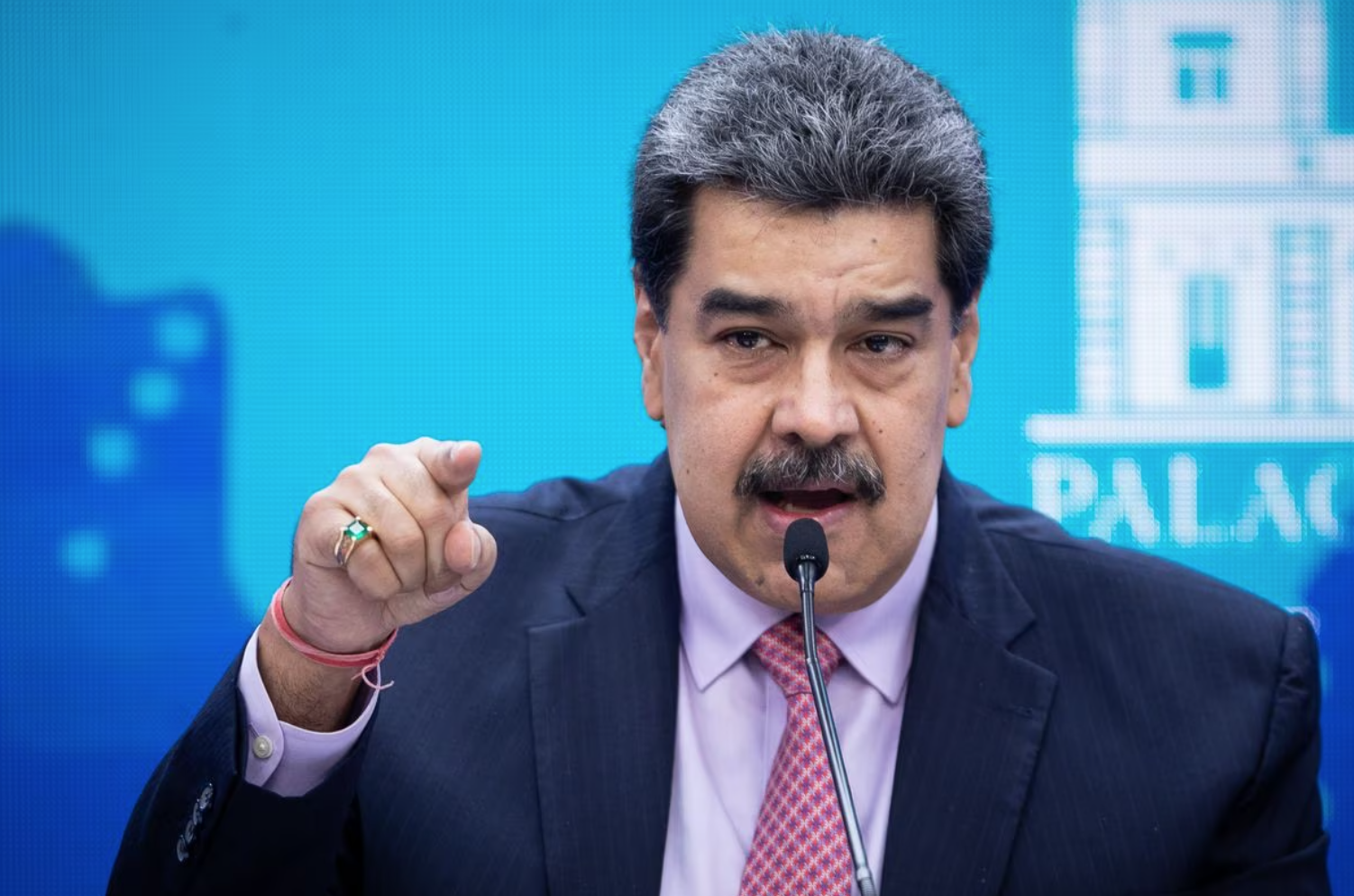
The Venezuelan government announced on Wednesday that it is investigating the case of 18 baseball players who are “under the supervision of Spanish authorities” after seeking protection.
In a statement, Venezuelan authorities said they are working to determine whether this case involves “a possible human trafficking scheme,” though they have not provided any evidence of such a crime.
The Venezuelan government emphasized its commitment to protecting the country’s athletes while also denouncing the use of international legal frameworks by certain governments allegedly seeking to discredit the administration.
CNN reached out to Spain’s National Police for a response to Venezuela’s claims. According to Spanish authorities, the 18 young athletes—including two minors—arrived in Spain to participate in a series of matches but had already planned to apply for asylum. Authorities confirmed on Tuesday that they had begun interviewing the players to process their international protection requests.
The team’s coach addressed the situation in a TikTok video, refuting local media reports that he had abandoned the athletes. He asserted that the players chose to remain in Barcelona to secure the necessary permits to sign with other teams and that their decision was unrelated to any political motivations.
Sports
Filipe Luis debuts as coach in Copa Libertadores with Flamengo

A two-time Copa Libertadores champion with Flamengo during his playing days, Filipe Luis will make his managerial debut in the tournament this Thursday when the popular Rio de Janeiro club faces Venezuela’s Deportivo Táchira.
Placed in Group C alongside Táchira, Liga de Quito, and Argentina’s Central Córdoba, Flamengo starts as one of the favorites—a major challenge for the 39-year-old former player.
His early coaching career has been off to a strong start.
After retiring in 2023, Filipe Luis took over as Flamengo’s head coach on September 30. Just 41 days later, he won his first title, the Copa do Brasil. The year 2025 has already brought two more trophies: the Supercopa do Brasil, where Flamengo defeated Botafogo—current Libertadores and Brasileirão champions—3-1, and the Campeonato Carioca.
At 8:30 PM local time (00:30 GMT Friday), Flamengo under Filipe Luis will make its international debut at Estadio Pueblo Nuevo in San Cristóbal. Although Gerson, Uruguayan Giorgian de Arrascaeta, and Ecuadorian Gonzalo Plata are unavailable, the squad still boasts attacking firepower with Bruno Henrique and Everton.
-

 International5 days ago
International5 days agoSon of journalist José Rubén Zamora condemns father’s return to prison as “illegal”
-

 Central America2 days ago
Central America2 days agoU.S. Homeland Security Secretary urges Mexico to strengthen Guatemala border
-

 International5 days ago
International5 days agoMiyazaki’s style goes viral with AI but at what cost?
-

 Central America4 days ago
Central America4 days agoPanama police clarifies that Interpol alert for Martinelli is still pending
-

 International2 days ago
International2 days agoTrump urges Putin to reach peace deal
-

 Central America2 days ago
Central America2 days agoPanama grants Martinelli 72-hour extension to travel to Nicaragua
-

 International19 hours ago
International19 hours agoParaguay summons Brazilian ambassador over Itaipú espionage scandal
-

 International4 days ago
International4 days agoDeportation flight lands in Venezuela; government denies criminal gang links
-

 Central America17 hours ago
Central America17 hours agoGuatemalan police officer killed in mob riots over baby kidnapping
-

 Sports20 hours ago
Sports20 hours agoFilipe Luis debuts as coach in Copa Libertadores with Flamengo
-

 International20 hours ago
International20 hours agoMilei vows to make Argentina so strong that Falkland Islanders “choose” to join
-

 International20 hours ago
International20 hours agoElon Musk to step down as government advisor, per Trump insiders
-

 Sports19 hours ago
Sports19 hours agoVenezuela investigates 18 baseball players seeking asylum in Spain
-

 International20 hours ago
International20 hours agoICE agent’s arrest of suspect sparks controversy in Boston
-

 International20 hours ago
International20 hours agoÓscar Arias: Trump’s trade policies are a step backward








































































